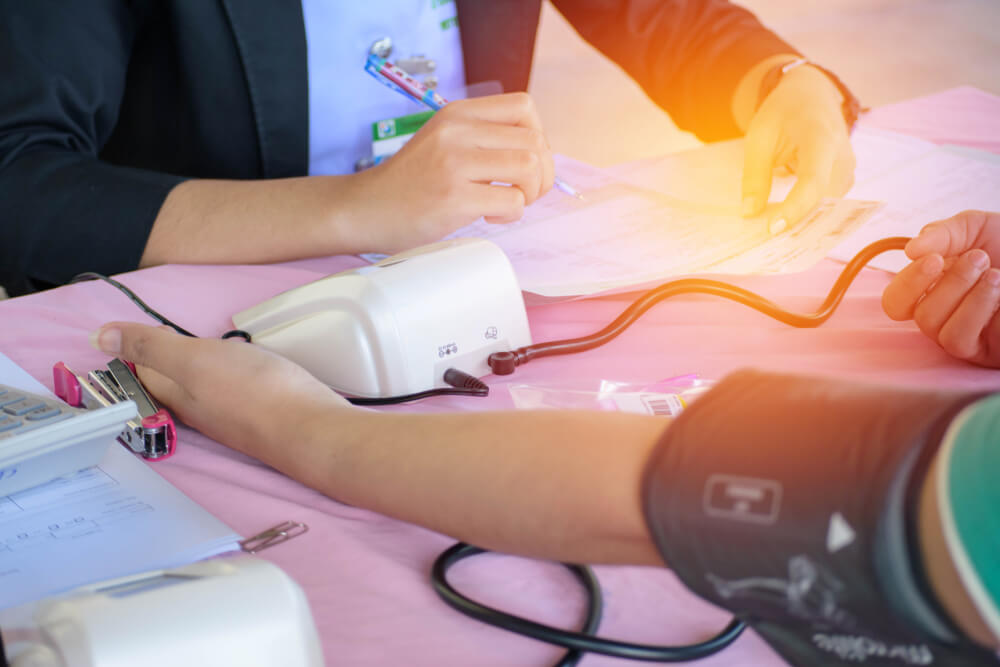High blood pressure hitting more than half the adults in the United States and only a fraction of people with high blood pressure are doing anything about it.
Many people believe it’s extremely difficult to lower their blood pressure, but there are some small changes you can make that can make significant differences.
Recommended: Learn More about the Support L-arginine Plus can offer to help your blood pressure
So if you have high blood pressure, what small lifestyle changes can you make to better control it?
1. Lose weight
Blood pressure often increases as weight increases.
Weight loss is one of the most effective lifestyle changes for controlling blood pressure. Losing just 5 to 10 pounds can help reduce your blood pressure. Carrying too much weight around your waist can also put you at greater risk of high blood pressure.
While it may seem like it’s difficult to lose weight, don’t worry about losing it all at once, just begin taking the steps necessary to lose weight and before you know it, you’ll be there.
2. Exercise Regularly
Regular physical activity — at least 30 minutes 3-5 days per week — can help lower your blood pressure.
The best types of exercise for lowering blood pressure include walking, jogging, cycling, swimming or dancing. Strength training can also reduce blood pressure. Talk to your doctor or a certified personal trainer about developing an exercise program that’s right for you.
3. Eat a Healthy, Balanced Diet
Eat a diet that is rich in whole grains, fruits, vegetables, low-fat dairy, omega-3 fatty acids and soluble fiber. Also reduce your sodium intake, eliminate trans fats and avoid foods that are high in cholesterol.
Watch your portion control and don’t overeat. Make sure you are drinking plenty of water on a daily basis.
4. Limit alcohol
Alcohol can be good for your health in small amounts by lowering your blood pressure by 2 to 4 mm Hg. Drinking more than moderate amounts of alcohol can actually raise your blood pressure by several points.
Moderate alcohol consumption guidelines are no more than one drink a day for women and for men older than age 65, or more than two a day for men age 65 and younger. (One drink equals 12 ounces of beer, five ounces of wine or 1.5 ounces of 80-proof liquor.)
Drinking too much alcohol can also reduce the effectiveness of blood pressure medications.
5. Quit smoking
Each cigarette you smoke increases your blood pressure for many minutes after you finish. Quitting smoking can help your blood pressure return to normal. People who quit smoking, regardless of age, generally have significant increases in life expectancy. Being around second-hand smoke can also increase your blood pressure so try to avoid being around smokers.
6. Reduce stress
Chronic stress is a major contributor to high blood pressure. Occasional stress can also contribute to high blood pressure if you react by eating unhealthy food, drinking too much alcohol or smoking.
Look for ways that you can reduce or eliminate some stress in your life. Identify and avoid triggers for any unhealthy stress coping habits that you have.
7. Cut back on caffeine
If you are a habitual caffeine drinker, an increase in caffeine doesn’t necessarily increase your blood pressure.
However, to see if caffeine is raising your blood pressure, check your pressure 30 minutes after drinking a caffeinated beverage. If your blood pressure increases by 5 to 10 mm Hg, you may be sensitive to the blood pressure raising effects of caffeine and should reduce your caffeine intake.
8. Begin Taking L-arginine Plus
L-arginine Plus has been shown to offer support for healthy blood pressure within a few weeks. With the ingredients in L-arginine Plus, it helps boost nitric oxide levels.
By increasing your nitric oxide levels, L-arginine Plus opens the blood vessels and makes it easier for your heart to pump blood through the body.
For more information, you can visit here.

